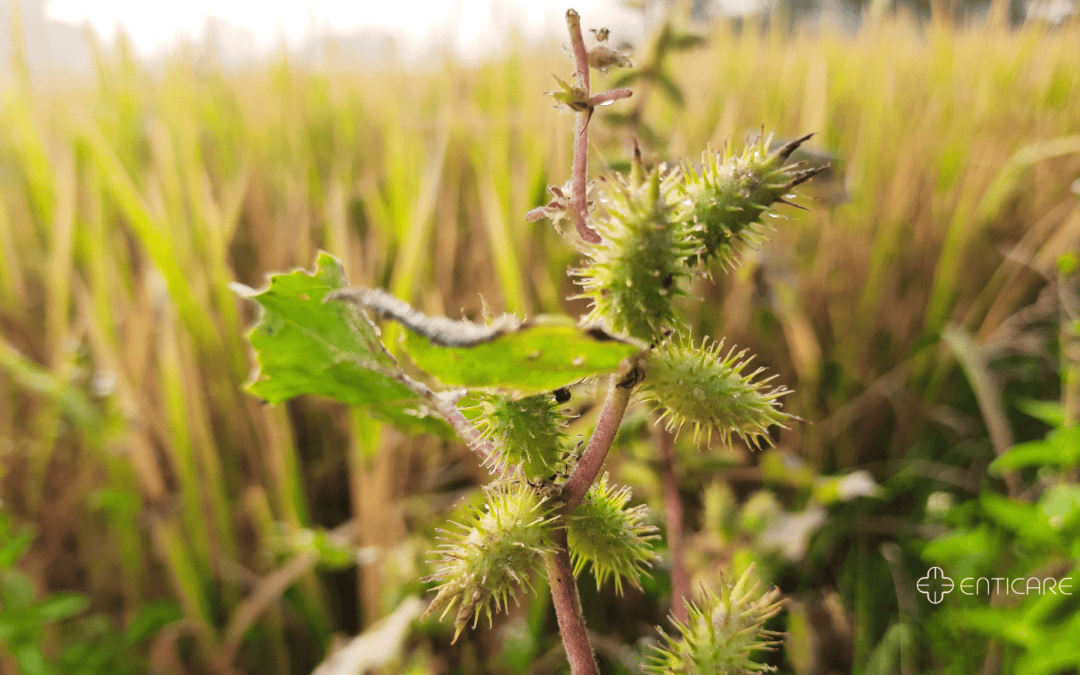Do you experience a runny nose, itchy eyes, or sneezing when you spend time outdoors during late summer and fall? You might be surprised to learn the culprit isn’t grass itself, but a sneaky weed called cocklebur.
Cocklebur allergy can be a real nuisance, causing a range of uncomfortable symptoms. But fear not, with proper knowledge and management, you can enjoy the outdoors again!
Cocklebur is a common weed found throughout North America, releasing pollen into the air from July to September. This airborne pollen triggers allergic reactions in some individuals, causing a cascade of unpleasant symptoms.
Symptoms of a Cocklebur Allergy:
If you experience these symptoms, particularly when outdoors during late summer and fall, consult an allergist for proper diagnosis:
- Runny or stuffy nose
- Itchy, watery eyes
- Sneezing
- Coughing
- Scratchy throat
- Itchy, irritated skin (hives)
- Worsened asthma symptoms
What Causes a Cocklebur Allergy?
When you inhale cocklebur pollen, your immune system mistakenly identifies it as a threat. This triggers the release of histamines, chemicals that cause allergy symptoms.
Preventing Cocklebur Allergy Attacks:
Pollen Check: Stay informed about daily pollen counts. Limit outdoor activities when they’re high.
Dress Smart: Wear long sleeves and pants when outdoors to create a barrier against pollen.
Shower Power: After spending time outside, shower and change clothes to remove pollen clinging to you.
Seal the Deal: Keep windows closed during peak pollen seasons. Use air purifiers with HEPA filters indoors.
Medication Magic: Consult your doctor about antihistamines or nasal corticosteroids to manage symptoms.
Risk Factors for Cocklebur Allergy:
Family History: Having a family member with allergies increases your risk.
Existing Allergies: Those with allergies to ragweed or other weeds are more susceptible.
Environmental Exposure: Frequent exposure to cocklebur pollen heightens your risk.
Treatment Options for Cocklebur Allergy:
Antihistamines: These medications block the action of histamine, reducing allergy symptoms like runny nose, sneezing, and itchy eyes.
Nasal Corticosteroids: Sprays delivered directly to the nose reduce inflammation in the nasal passages, alleviating congestion and irritation.
Allergy Shots (Immunotherapy): Over time, allergy shots can desensitize your immune system to cocklebur pollen, reducing your reaction over a period of years.
Consulting a board-certified allergist is crucial for proper diagnosis and an effective treatment plan.
Living With a Cocklebur Allergy
By understanding cocklebur allergy and implementing preventive measures, you can significantly reduce its impact on your life. Don’t let allergies hold you back from enjoying the outdoors! With proper management and some strategic planning, you can breathe easy and embrace the beauty of nature throughout the year. Explore tailored treatment solutions with Enticare. Connect with us at 480-214-9000 to embark on your journey to better health.

